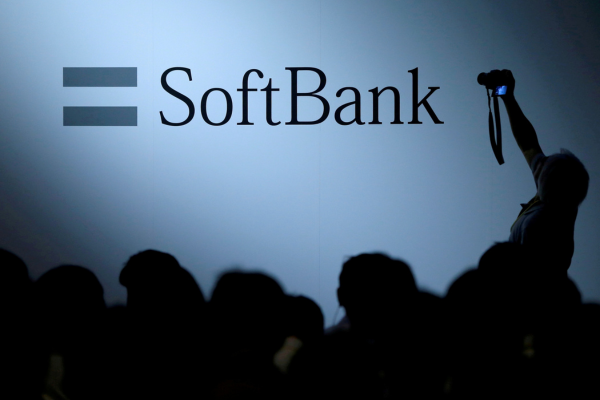Bridging financial gaps: making banking accessible

Deepak Gupta at Volante Technologies explains the importance of inclusion and accessibility in global payments
Technology is reshaping the way people access banking services, creating new pathways for inclusion and driving efficiency in financial systems across diverse regions. From remote villages to busy cities, financial technology is revolutionising banking by making it faster, more affordable, and accessible to a broader population.
In regions that have traditionally faced barriers to financial services, emerging technologies such as real-time payments, cloud-native solutions, and streamlined cross-border payment systems are bridging long-standing gaps. These innovations are not just enhancing the way money flows but are enabling individuals, businesses, and entire economies to thrive by integrating them into the global financial system.
Real-time payments empower inclusion
One of the key technological innovations driving change is the widespread adoption of real-time payments. In regions like South Africa, the impact of these technologies is already being felt. Real-time payments enable instant money transfers, reducing the reliance on traditional banking hours and physical infrastructure. This technology has proven invaluable for communities in remote or underserved areas, where traditional banking systems may be inaccessible.
A Citi report highlights that cross-border payments are expected to reach $250 trillion by 2027, growing at a rate of about 5% per year. This growth is fueled in part by the increasing adoption of real-time payment systems. These systems are not only improving speed but are making banking services available to a wider demographic. For individuals in rural areas, who once faced barriers such as distance, high transaction costs, and limited access to banking institutions, real-time payments are providing a much-needed gateway to the financial system.
Cloud tech revolutionising banking services
Cloud-native technologies are revolutionising the financial sector by enabling scalability, flexibility, and the real-time processing of transactions. These solutions allow banks and financial institutions to enhance their existing infrastructure while creating innovative new products that cater to the specific needs of diverse populations.
For instance, Standard Bank, Africa’s largest bank by assets, is leveraging cloud-native solutions to drive financial inclusion. With a customer base of over 19 million, Standard Bank’s investments in local solutions and customised financial products ensure that services are designed to meet the unique challenges faced by different segments of the population. By utilising cloud-based platforms, the bank is able to offer personalised financial services that are both accessible and efficient.
Moreover, the adoption of industry standards such as ISO 20022 enables smoother communication and interoperability between banks, enhancing payment system efficiency across borders and regions.
Cross-border payments connecting the world
As globalisation continues to reshape economies, the ability to conduct seamless cross-border payments has become essential. However, cross-border transactions often involve complex compliance regulations, currency exchange hurdles, and delays due to outdated infrastructure. To address these challenges, financial technology providers are offering integrated solutions that simplify and speed up the process of making international payments.
Phased integration approaches to cross-border payment systems allow financial institutions to adopt innovative solutions gradually, making it easier to remain compliant with regulatory frameworks across multiple jurisdictions. This reduces friction and increases the efficiency of international money transfers, allowing businesses and consumers to transact more freely and securely.
The rise of Application Programming Interfaces (APIs) is also playing a key role in the modernisation of cross-border payments. With APIs facilitating direct communication between different financial institutions and payment networks, the traditional batch processing methods are being replaced by more agile, real-time connections. This shift promises to transform cross-border payments, making them faster, cheaper, and more accessible for individuals and businesses alike.
The role of Fintech in economic growth
In emerging markets, technological advancements are not only improving the accessibility of banking services but are also playing a key role in driving economic growth. By enhancing the efficiency of payment systems and expanding the reach of banking services, technology is helping to integrate previously excluded populations into the global financial system.
These innovations are playing a pivotal role in reducing financial exclusion, especially in regions where traditional banking infrastructure has been limited. By enabling more people to access and engage with financial services, technology is fostering greater economic participation and opening new opportunities for growth, both for individuals and businesses.
The convergence of these technologies signals a future where financial services are more aligned with the needs of diverse populations, driving a more inclusive global economy. As emerging markets continue to lead the way in adopting these technologies, they will play a crucial role in building a financial ecosystem that is both efficient and accessible to all.
Deepak Gupta is EVP Product, Engineering & Services at Volante Technologies
Main image courtesy of iStockPhoto.com and Umnat Seebuaphan

Business Reporter Team
Most Viewed
Winston House, 3rd Floor, Units 306-309, 2-4 Dollis Park, London, N3 1HF
23-29 Hendon Lane, London, N3 1RT
020 8349 4363
© 2025, Lyonsdown Limited. Business Reporter® is a registered trademark of Lyonsdown Ltd. VAT registration number: 830519543





